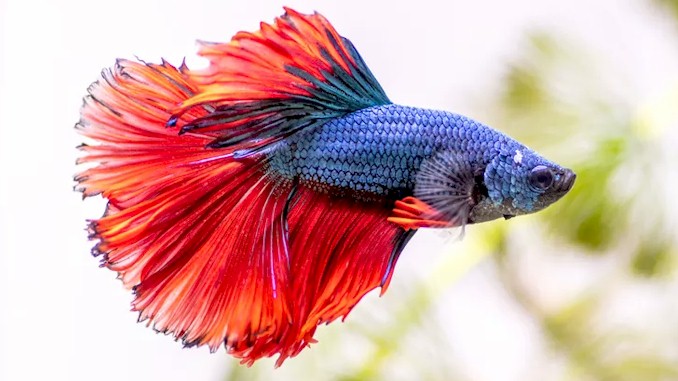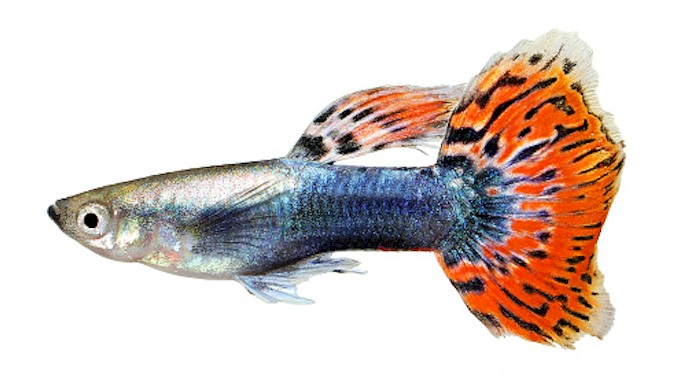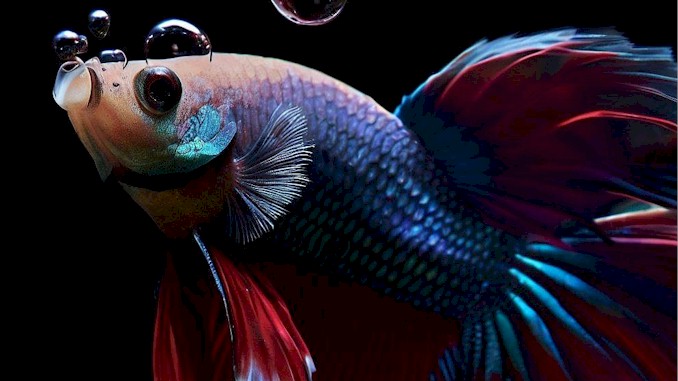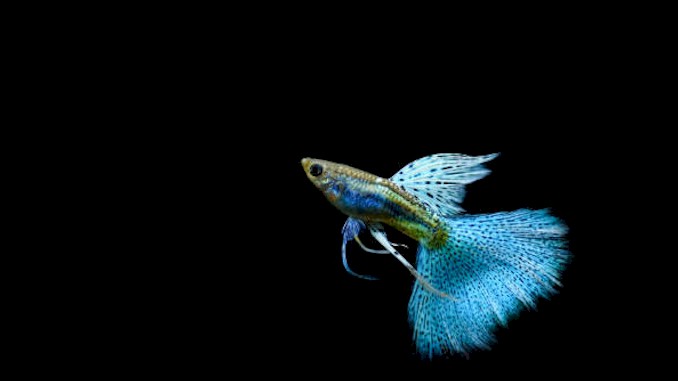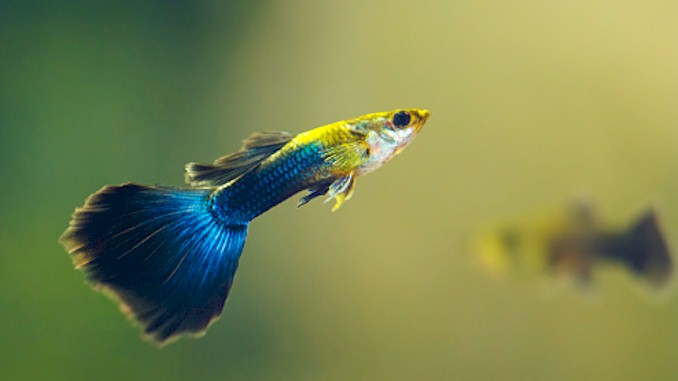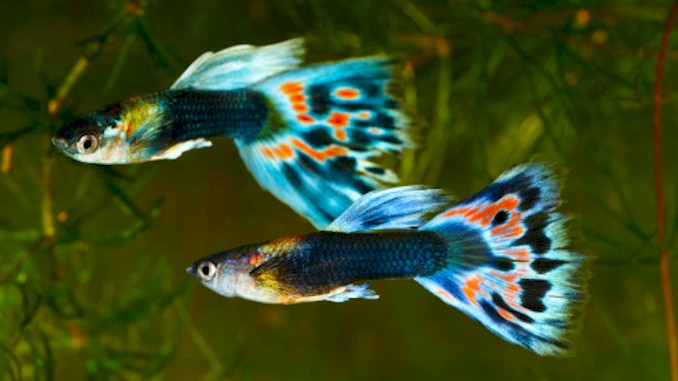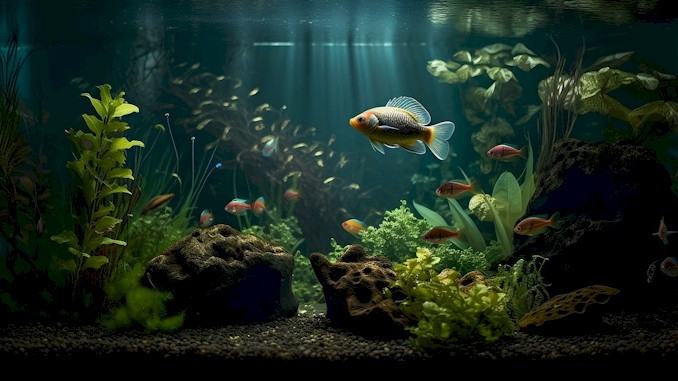How Long Betta Fish Live: Average Lifespan & How to Extend It
If you are a betta fish owner or planning to become one, you might wonder how long these beautiful and colorful fish can live. I was in the same shoes as you when I planned to have the Betta fishes in my aquarium about 10 years age, then I spent a lot of time searching and study on this topic. This article is about what I have learned:
The average lifespan of betta fish is between three and five years in captivity. However, some betta fish can live up to seven or even ten years if they are well cared for and have good genetics. The lifespan of betta fish depends on several factors, such as water quality, temperature, diet, stress level, and disease prevention. By optimizing these factors, betta fish owners can increase the chances of their fish living longer and healthier lives.
To make your bettas live longer, there are many things you need to do. Some bettas also live longer than others (especially females). In the following sections, I will share with you the average lifespan of betta fish and how you can extend it by providing them with the best possible environment, diet, and health care. I have been keeping betta fish for over ten years, and I know what it takes to make them happy and healthy. Read on to find out how you can help your betta fish live longer and enjoy their life in your aquarium.
How Long Do Betta Fish Live in the Wild vs. in Captivity?
One of the most common questions that betta fish owners have is how long do betta fish live in the wild versus in captivity. The answer is not straightforward, as there are many factors that affect the lifespan of these fish, such as genetics, diet, water quality, temperature, stress, and diseases. However, we can look at some general trends and averages to get an idea of how long betta fish can live under different conditions.
Betta fish are native to Southeast Asia, where they inhabit shallow freshwater habitats such as rice paddies, ponds, marshes, and streams. These habitats are often low in oxygen and subject to fluctuations in temperature and water level. In the wild, betta fish have to compete for food and space with other fish and predators. They also have to deal with parasites and infections that can shorten their lives. The average lifespan of a wild betta fish is estimated to be around 2 years, although some may live longer or shorter depending on their luck and environment.
In captivity, betta fish have a different set of challenges and advantages. On one hand, they don’t have to worry about predators, food scarcity, or pollution. They also have access to air at the surface of the water, which helps them breathe better. On the other hand, they may suffer from poor water quality, overcrowding, inappropriate tank mates, inadequate diet, or neglectful owners. These factors can cause stress and disease that can reduce their lifespan. The average lifespan of a captive betta fish is around 3 years, but it can vary widely depending on how well they are cared for. Some betta fish can live up to 5 years or more in captivity if they are given optimal conditions and attention.
The oldest recorded betta fish was named Mauve and lived for 10 years in a 5-gallon tank with a heater and a filter. He was fed high-quality food and received regular water changes and care from his owner. He also had good genetics that contributed to his longevity. While this is an exceptional case, it shows that betta fish can live much longer than most people think if they are given the right environment and care.
How Long Do Male Betta Fish Live Compared to Female Betta Fish?
Another question that many betta fish owners have is how long do male betta fish live compared to female betta fish. The answer may surprise you, as there is not much difference between the two sexes in terms of lifespan. However, there are some factors that may affect how long your male or female betta fish will live.
According to various sources, the average lifespan of a betta fish, whether male or female, is around 3 years in captivity. However, this can vary depending on the quality of care, diet, water conditions, genetics, and stress levels of your betta fish. Some betta fish can live up to 5 years or more if they are well cared for and have good genes.
However, you may notice that your male betta fish tend to die sooner than your female betta fish. This is not because they have a shorter natural lifespan, but because they are more prone to certain risks and challenges that can shorten their lives. Some of these are:
- Stress: Male betta fish are more aggressive and territorial than female betta fish. They will flare their gills and fins at any perceived threat or rival, including their own reflection or other male bettas. This can cause them to be constantly stressed and anxious, which can weaken their immune system and make them more susceptible to diseases and infections.
- Fighting: Male betta fish are also more likely to engage in fights with other male bettas or other fish that they see as competitors. This can result in injuries, wounds, fin damage, or even death. That’s why it’s not recommended to keep male bettas together or with other aggressive or fin-nipping fish.
- Breeding: Male betta fish are responsible for building bubble nests and guarding the eggs and fry after mating with a female betta. This can be a very exhausting and demanding task for them, as they have to constantly patrol their territory and fend off any intruders or predators. They also have to fast during this period, as they don’t want to risk eating their own offspring. This can take a toll on their health and energy levels.
- Age: Male betta fish are usually older than female bettas when you buy them from a pet store or a breeder. This is because male bettas develop their full colors and fins when they are around one year old, while female bettas reach maturity at around six months old. This means that male bettas have less time left to live than female bettas when you bring them home.
These factors do not mean that male betta fish cannot live as long as female betta fish. They just mean that you have to be more careful and attentive when caring for your male bettas.
You have to provide them with a spacious tank (at least 2.5 gallons), clean water (with water conditioner), high-quality food (with protein and fiber), a heater (to maintain a stable temperature around 80°F), a filter (to remove waste and toxins), plants and decorations (to provide hiding places), and a tank cover (to prevent them from jumping out).
You also have to avoid keeping them with other male bettas or incompatible tank mates (such as gouramis, tetras, barbs, etc.), and monitor their stress levels and health regularly.
How to Extend the Lifespan of Your Betta Fish by Providing Optimal Care and Environment
The lifespan of a betta fish depends largely on how well you take care of them. A well-taken care of betta can live up to six years or more, while a poorly cared for betta may only live for a few months or less. Therefore, if you want to extend the lifespan of your betta fish, you need to provide them with optimal care and environment.
There are many aspects of betta fish care and environment that can affect their health and longevity. Some of the most important ones are:
- Tank size: Betta fish need adequate space to swim and explore. The minimum tank size for a single betta fish is 2.5 gallons, but bigger is always better. A larger tank will provide more oxygen, stability, and enrichment for your betta fish.
- Water quality: Betta fish need clean and stable water conditions to thrive. You should use tap water with water conditioner to remove harmful chlorine and other chemicals. You should also cycle your tank to establish beneficial bacteria that can break down ammonia and nitrite. You should perform regular water changes (10-15% weekly) and test your water parameters (ammonia, nitrite, nitrate, pH) to ensure they are within the safe range for your betta fish.
- Water temperature: Betta fish are tropical fish that need warm water to stay healthy. You should use a heater to maintain a stable water temperature around 80°F (26°C). Temperature fluctuations can stress your betta fish and make them more prone to diseases.
- Filtration: Betta fish need a filter to remove waste and toxins from their water. However, they don’t like strong currents that can damage their fins or stress them out. You should use a gentle filter that has an adjustable flow rate or baffles to reduce the water movement. You should also rinse your filter media in old tank water during water changes to preserve the beneficial bacteria.
- Lighting: Betta fish need natural day and night cycles to regulate their biological clock and behavior. You should use a tank light that mimics the natural sunlight and put it on a timer to maintain a consistent schedule. You should provide your betta fish with 12 hours of light and 12 hours of darkness per day.
- Plants and decorations: Betta fish need plants and decorations to provide them with hiding places, security, and stimulation. You can use live or artificial plants, but make sure they are soft and smooth to avoid injuring your betta’s fins. You can also use rocks, driftwood, caves, or other ornaments to create a natural-looking habitat for your betta fish.
- Food: Betta fish need high-quality food that meets their nutritional needs. You should feed your betta fish once or twice a day with an amount of food that they can consume within 2 minutes. You should use pellets or flakes that are specially formulated for bettas and contain high protein and fiber content. You can also vary their diet with frozen or live foods such as bloodworms, brine shrimp, or daphnia.
- Tank mates: Betta fish are aggressive and territorial fish that don’t get along well with other fish of the same species or similar appearance. You should never keep two male bettas or a male and female betta together unless you are breeding them. Female bettas can be kept together in groups of five or more in a large tank (10 gallons or more), but they may still fight occasionally. If you want to keep other fish with your betta fish, you should choose peaceful, shoaling species that won’t bother or harm your betta fish such as snails, shrimp, corydoras catfish, rasboras, or tetras.
By following these tips and providing your betta fish with optimal care and environment, you can help them live longer and happier lives.
Does the Size of a Fish Tank Impact the Lifespan of Betta Fish?
One of the most important factors that can impact the lifespan of betta fish is the size of their tank. Many people think that betta fish can live happily in small bowls or cups, but this is a myth that can harm their health and shorten their lives. Betta fish need adequate space, clean water, and proper filtration to thrive and live longer.
Betta fish are active and curious fish that like to swim around and explore their environment. They also need to breathe air at the water surface using their labyrinth organ. In a small tank or bowl, they don’t have enough room to move freely and comfortably. They also have less oxygen available and more waste accumulation in the water. This can cause them to become stressed, depressed, bored, or sick.
The minimum tank size for a single betta fish is 2.5 gallons, but bigger is always better. A larger tank will provide more space, oxygen, and stability for your betta fish. It will also allow you to add more plants and decorations to enrich their habitat and make them feel more secure. A larger tank will also be easier to cycle and maintain, as it will have a lower bioload and less ammonia buildup.
The ideal tank size for a single betta fish is 5 gallons or more. This will give your betta fish plenty of room to swim, explore, and display their natural behaviors. It will also allow you to add a heater and a filter to keep the water at a stable temperature (around 80°F) and quality. A 5-gallon tank will also give you more options for adding compatible tank mates (such as snails or shrimp) or live plants (such as java fern or anubias) to your betta’s environment.
The size of your betta fish’s tank can make a big difference in how long they will live. In a small tank or bowl, your betta fish may only live for 1-2 years. In a larger tank with proper care and conditions, your betta fish can live up to 5 years or more. Therefore, if you want your betta fish to live longer and happier, you should invest in a suitable tank size for them
What Is the Oldest Living Betta Fish and How Did It Achieve Such Longevity?
You may be wondering what is the oldest living betta fish and how did it achieve such longevity. While most betta fish live for 2-5 years in captivity, some exceptional cases have been reported of betta fish living for much longer. The oldest recorded betta fish was named Fred and lived for 14 years and 3 months. He was owned by a British woman named Julie Gregory, who took great care of him.
Fred was put into a special tank with filtered water and plenty of live plants when he was just a few months old. He was fed high-quality food and received regular water changes and care from his owner. He also had good genetics that contributed to his longevity. Fred was a blue crowntail betta with red highlights on his fins. He was very active and friendly, and loved to interact with his owner and other people.
Fred’s story is very rare and inspiring, but not impossible to replicate. There are other examples of betta fish living for 6-10 years or more in captivity. These betta fish owners have shared some common tips and tricks to help their betta fish live longer:
- Provide a spacious tank (at least 5 gallons) with a heater, a filter, a lid, plants, and decorations.
- Keep the water clean and stable by using water conditioner, cycling the tank, and performing regular water changes (10-15% weekly).
- Feed your betta fish high-quality food that is high in protein and fiber, such as pellets, flakes, frozen or live foods. Avoid overfeeding or underfeeding your betta fish.
- Monitor your betta fish’s health and behavior regularly. Look for signs of stress, disease, or injury. Treat any problems as soon as possible with medication or natural remedies.
- Avoid keeping your betta fish with incompatible tank mates or other male bettas. Choose peaceful, shoaling species that won’t bother or harm your betta fish.
- Provide your betta fish with mental stimulation and enrichment. Interact with your betta fish daily by talking to them, playing with them, or training them. You can also change their environment occasionally by adding new plants or decorations.
By following these tips and providing your betta fish with optimal care and attention, you can increase their chances of living longer and happier lives.
How Old Are Betta Fish When You Buy Them from a Pet Store or a Breeder?
If you are planning to buy a betta fish from a pet store or a breeder, you may be curious about how old they are and how long they will live with you. The age of a betta fish can affect its health, behavior, and appearance. Knowing how old your betta fish is can also help you provide them with the best care possible.
The age of a betta fish when you buy them from a pet store or a breeder depends on several factors, such as their species, sex, color, fin type, and popularity. However, most betta fish sold at pet stores or online are usually between 6 months to 1 year old. This means that they have already reached their maturity and developed their full colors and fins.
There are some exceptions to this general rule, however. Some betta fish may be sold younger or older than the average age range. For example:
- Some rare or exotic species of betta fish may take longer to breed and grow than the common betta splendens. These betta fish may be sold when they are older than 1 year old.
- Some female betta fish may be sold when they are younger than 6 months old. This is because female bettas reach maturity faster than male bettas and have shorter fins and duller colors that make them less appealing to some buyers.
- Some male betta fish may be sold when they are younger than 6 months old. This is because some breeders may want to sell them before they develop their full aggression and territoriality that can make them harder to handle and ship.
The best way to tell how old your betta fish is when you buy them from a pet store or a breeder is to ask them directly. A reputable seller should be able to provide you with accurate information about the age, origin, and health of your betta fish. You can also look for some clues on your betta fish’s body that can indicate their age, such as their size, fins, color, and eyes. However, these clues are not always reliable and can vary depending on the individual fish.
The age of your betta fish when you buy them from a pet store or a breeder is not the only factor that determines how long they will live with you. The lifespan of a betta fish also depends on how well you care for them in captivity. By providing them with a suitable tank size, clean water, high-quality food, proper temperature, compatible tank mates, and mental stimulation, you can help your betta fish live longer and happier lives.
How Long Can Betta Fish Live Without Food and What Are the Signs of Starvation?
One of the questions that many betta fish owners have is how long can betta fish live without food and what are the signs of starvation. This question may arise when you are planning to go on a vacation or a business trip and you don’t have anyone to feed your betta fish while you are away. Or it may happen that you simply forget to feed your betta fish for a few days and wonder if they are okay.
The answer is that betta fish can live without food for quite a while, but they should not be left unfed for too long. Betta fish can survive without food for up to 14 days thanks to their small stomachs and instincts from their wild habitats. However, surviving isn’t thriving, and after 4 to 5 days without food, betta fish will start tapping into their reserves and enter the beginning stages of starvation.
Starvation is a serious condition that can harm your betta fish’s health and shorten their lifespan. Starvation can cause your betta fish to lose weight, muscle mass, color, and energy. It can also weaken their immune system and make them more susceptible to diseases and infections. Some of the signs of starvation in betta fish are:
- Sunken belly: A healthy betta fish should have a slightly rounded belly that is not too bloated or too thin. A sunken belly indicates that your betta fish is not getting enough food and is using up its fat reserves.
- Hollow eyes: A healthy betta fish should have clear and bright eyes that protrude slightly from its head. Hollow eyes indicate that your betta fish is dehydrated and malnourished4.
- Faded color: A healthy betta fish should have vibrant and shiny colors that reflect its mood and health. Faded color indicates that your betta fish is stressed and losing its pigmentation due to lack of nutrients.
- Lethargy: A healthy betta fish should be active and curious, swimming around its tank and exploring its environment. Lethargy indicates that your betta fish is weak and tired due to lack of energy.
- Loss of appetite: A healthy betta fish should be eager to eat when you offer it food, especially if it has been fasting for a few days. Loss of appetite indicates that your betta fish is too sick or depressed to eat.
If you notice any of these signs in your betta fish, you should feed them as soon as possible and monitor their recovery. You should also check your water parameters and make sure they are optimal for your betta fish’s health. You may need to do a water change or add some aquarium salt or medication if needed.
To prevent starvation in your betta fish, you should feed them regularly with high-quality food that meets their nutritional needs. You should also avoid overfeeding or underfeeding them, as both can cause health problems. The general rule is to feed your betta fish once or twice a day with an amount of food that they can consume within 2 minutes. You can also vary their diet with different types of food such as pellets, flakes, frozen or live foods.
If you are going away for more than 4-5 days, you should find someone who can feed your betta fish while you are gone. If this is not possible, you can use an automatic feeder or a feeding block to provide some food for your betta fish. However, these methods are not very reliable and may cause more harm than good if not used properly. You should always test them before leaving and make sure they dispense the right amount of food without clogging or polluting the water.
Conclusion
Betta fish are amazing and beautiful creatures that can bring joy and companionship to your life. However, they also require proper care and attention to live long and healthy lives. In this blog post, we have covered some of the most important aspects of betta fish care and environment that can affect their lifespan. We hope that this information will help you provide your betta fish with the best possible conditions and make them happy. Remember that a happy betta is a healthy betta, and a healthy betta can live up to six years or more with you!

